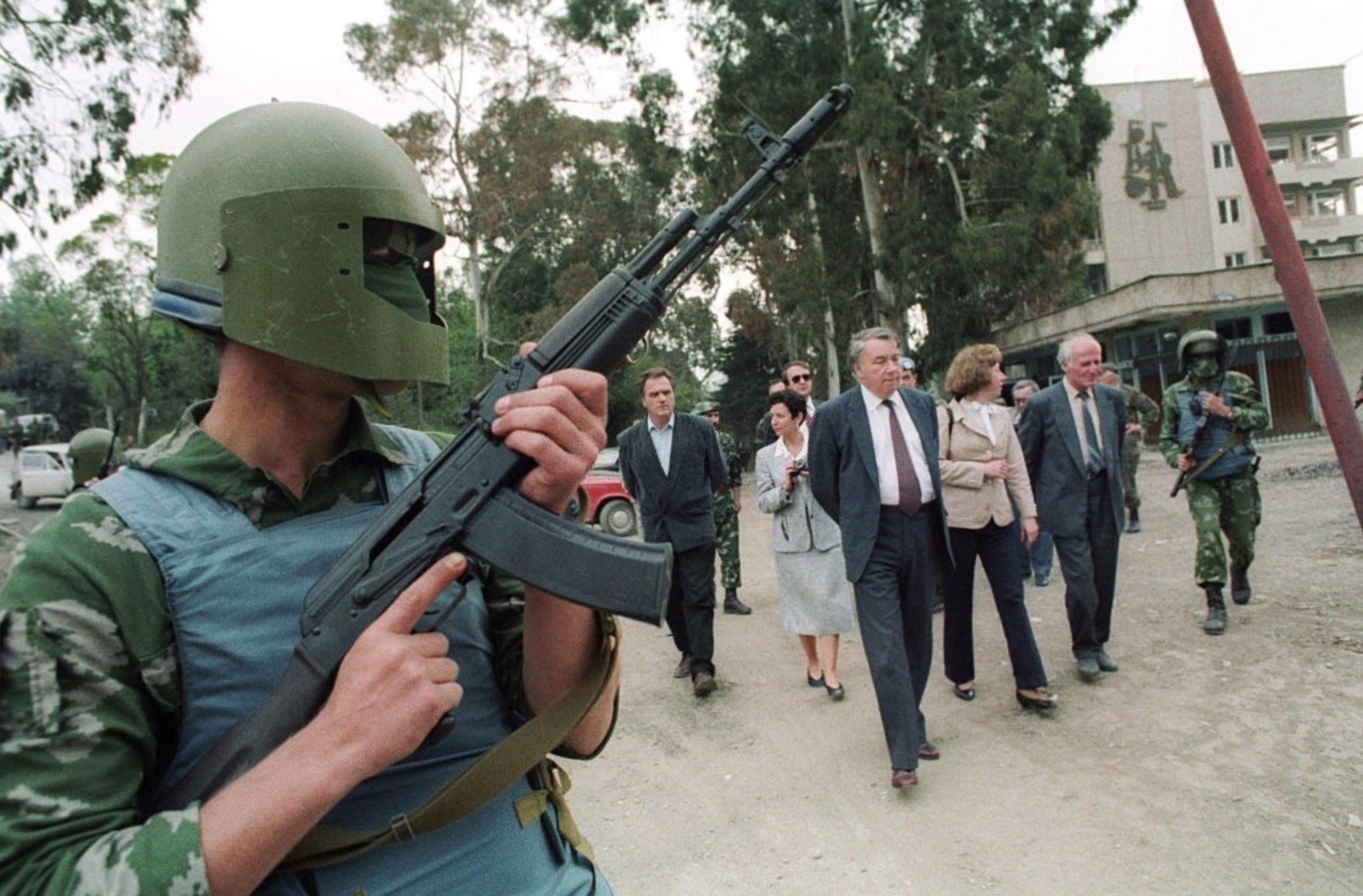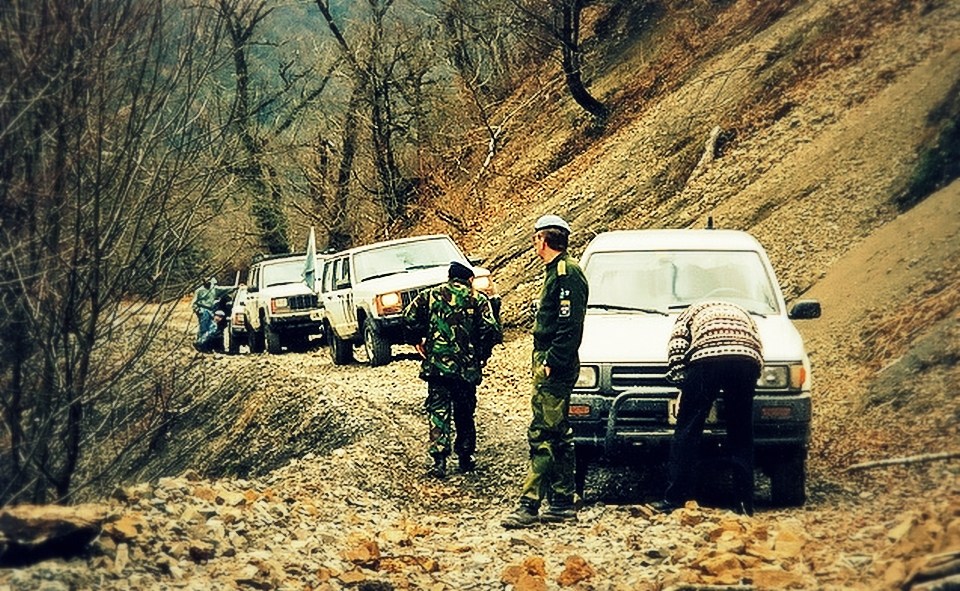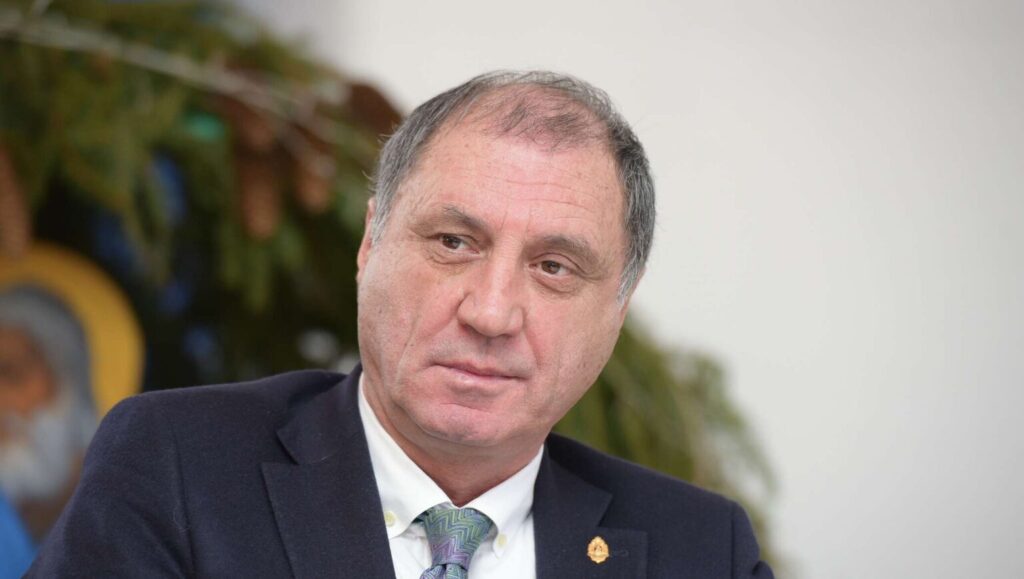UN Day: Reflecting on the United Nations' Role in Abkhazia

UN Day is observed annually on 24 October, marking the 1945 adoption of the UN Charter.
SUKHUM / AQW'A — Every year on 24 October, the international community observes United Nations Day, commemorating the organisation's founding in 1945. For Abkhazia, the past three decades have seen a complex engagement with the UN. From peacekeeping efforts in the 1990s to ongoing development projects, the organisation's role in the region has significantly evolved since the Georgian-Abkhazian conflict.
The UN's Role in the Georgian-Abkhazian Conflict
The UN first became actively involved in Abkhazia during the Georgian-Abkhaz conflict of the early 1990s. The United Nations Observer Mission in Georgia (UNOMIG) was established on 24 August 1993 by UN Security Council Resolution 858 to monitor the ceasefire agreement signed on 27 July 1993 between the conflicting parties. Initially comprising 88 military observers, the mission’s mandate was focused on maintaining contact with both sides of the conflict and monitoring the fragile peace.
Key Milestones
- 1993: UNOMIG established (24 August)
- 1994: Moscow Agreement signed (14 May)
- 1996: UN Human Rights Office opened in Sukhum
- 2008: Peak mission strength: 465 personnel
- 2009: UNOMIG mission ends (15 June)
- Present: 6 UN agencies operational
However, with the resumption of hostilities in September 1993, UNOMIG’s mandate was temporarily adjusted to maintain a dialogue between the parties. After several rounds of complex negotiations, a more formal ceasefire agreement was signed in Moscow on 14 May 1994, under the mediation of the UN Secretary-General's Special Envoy. The agreement led to the deployment of Commonwealth of Independent States (CIS) peacekeeping forces, with UNOMIG tasked with overseeing the peacekeeping activities and ensuring compliance with the ceasefire.

UN representatives visiting the conflict zone during the Georgian-Abkhazian conflict, 13June 1993.
UNOMIG’s Presence in Abkhazia
During its operational years, UNOMIG monitored the situation on the ground through daily patrols, with its headquarters in Sukhum and sector offices in Gal and Zugdidi. The mission also utilised aerial patrols to cover the more remote areas. In 1996, the UN established an office in Sukhum specifically for the protection and promotion of human rights in Abkhazia, highlighting its ongoing commitment to stabilising the region.
Despite these efforts, the mission faced limitations. A planned civil police component intended to support local law enforcement was only partially deployed, as the Abkhaz authorities did not consent to the stationing of police officers in the Gal region.

At the height of its operations in August 2008, UNOMIG had 136 military observers, 18 UN police officers, and 311 civilian staff. However, following the 2008 conflict in South Ossetia and Russia’s recognition of Abkhazia’s independence, disagreements within the UN Security Council regarding the renewal of UNOMIG’s mandate led to the mission’s termination on 15 June 2009.
Reflections on the UN’s Involvement
In an interview with Apsnypress, Abkhazia’s Minister of Foreign Affairs, Sergey Shamba, reflected on the UN’s activities in the region, noting the extensive work done by the mission in attempting to resolve the conflict. However, Shamba criticised what he saw as a lack of impartiality in the UN’s approach, particularly in the activities of the UN Secretary-General’s Group of Friends.
"We always felt that the UN representatives and the Group of Friends of the Secretary-General were siding with Georgia," Shamba stated. He further pointed out that recent discussions within the UN Human Rights Council, prompted by Georgia, continued to present the conflict in a one-sided manner, focusing on the issue of so-called "occupied territories."

Sergey Shamba, The Foreign minister of the Republic of Abkhazia.
Shamba also shared a personal account, recalling how his visa application to the United States was denied in April 2007, preventing him from attending an informal Arria-formula meeting at the UN Security Council, where a more candid exchange of views was expected. "This demonstrated their lack of interest in an objective assessment of the situation," he remarked.
Despite these challenges, Shamba emphasised that Abkhazia had managed to achieve independence and forge strong relations with major global powers, particularly the Russian Federation, which, as a permanent member of the UN Security Council, offers both development opportunities and security guarantees to the Republic of Abkhazia.
UN’s Current Engagement in Abkhazia
Although the UN’s peacekeeping mission in Abkhazia ended in 2009, several UN agencies continue to operate in the region. These include the United Nations Development Programme (UNDP), the United Nations High Commissioner for Refugees (UNHCR), the Food and Agriculture Organisation (FAO), UNICEF, the World Health Organisation (WHO), and UN Women. These agencies are focused on development, humanitarian assistance, and improving living conditions in Abkhazia, continuing the UN’s broader mission of promoting peace, security, and human rights globally.
As UN Day is observed worldwide, Abkhazia reflects on both the contributions and limitations of the UN in addressing the challenges it has faced in the post-Soviet era.